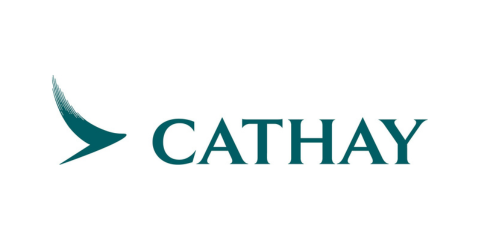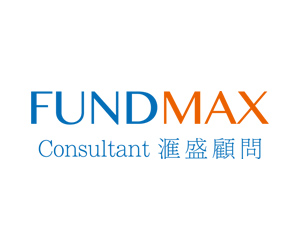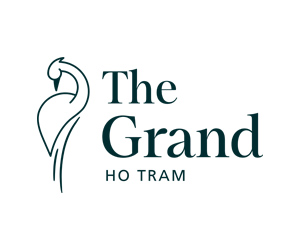Want to be in the loop?
subscribe to
our notification
Business News
STOCK MARKET IN EARLY 2020 AND SUPPORTING FACTORS
Just two months into the year 2020, the Vietnamese stock market has already undergone two different phases, according to SSI Securities Corporation. Phase 1, starting before the Lunar New Year or Tet holiday, witnessed the growth of key stock indices. Phase 2, starting after the Tet holiday, tanked as the Covid-18 epidemic broke out, erasing all gains from the start of the year.
VN-Index soars before the Tet holiday
According to SSI Securities Corporation, prior to the Lunar New Year holiday, the stock market had three key supporting factors: Good business performances of local banks, net foreign capital inflows, and fourth-quarter earnings reports.
The VN-Index jumped high, led by banks like BID, CTG and VPB. The market capitalization of the banking sector totaled more than VND1,000 trillion (US$43.5 billion) on January 22, an increase of 8.6% over the end of 2019.
Foreign investors turned to be net buyers, after five straight months of net selling on the Hochiminh Stock Exchange (HOSE). They bought net up to VND2,100 billion (US$91 million) from January 1, 2020 to January 22, 2020. Notably, as for ETF flows, VFMVN30 was the most active fund to raise money in the first period of the year. Strong fluctuations after Tet did not affect its net buying purchases. VFMVN30’s net buying value in January was nearly VND264 billion.
Fourth-quarter profit of HOSE-listed companies increased by 20.66% over a year earlier and brought their full-year profit growth to 12.1%. Profit after tax of the two largest sectors by market capitalization, banking and real estate, rose by 29.8% and 32.6%, respectively.
Covid-19 overturns every forecast
According to SSI, after the Lunar New Year holiday, the VN-Index plummeted due to a single cause, the outbreak of Covid-19 in China and some countries.
The Ministry of Planning and Investment proposed two growth scenarios for Vietnam amid epidemic impacts. Accordingly, if Covid-19 is quickly controlled in the first quarter, the country’s GDP is expected to climb 6.27% from a year ago in 2020. If Covid-19 is curbed in the second quarter, this year’s GDP growth will go up only 6.09%. Both scenarios show a much lower estimate than the annual growth of above 7% in the last two years.
Three days after the Tet holiday, the VN-Index dived sharply. Although global markets rebounded relatively quickly, the VN-Index was still under rising pressure of retreat. The gauge dropped 5.4% from January 22, 2020, to February 12, 2020, while the MSCI EM-Index dipped 3% and the S&P 500 looked up 1%.
Covid-19 overcast the stock market in the first quarter and hurt the whole year of 2020.
Supposedly, if there were no Covid-19 epidemic, the stock market would thrive thanks to the United States - China trade agreement and foreign capital flows. Until mid-January 2020, fund managers around the globe remained optimistic with the highest stock portfolio in 17 months. Capital flows into emerging markets continued to increase and foreign investors kept buying in Vietnam’s stock market.
Global fund flows started to reverse their course since the end of January. Covid-19 resulted in substantial revision of growth forecast for East Asian countries and forced fund managers to change their strategies. Emerging markets in Asia witnessed strong foreign outflows due to their high interconnectivity of production and consumption with China. The outflow value from equity funds in the region rose to a 19-week high in the first week of February. The prospect of attracting foreign funds for the stock market in February and even the following months in Vietnam was therefore revised down.
Two scenarios for Vietnam’s stock market
According to the negative scenario, a complex epidemic may cause a prolonged blockade in China that will directly affect production chains of Vietnamese enterprises. This will be the second negative blow after the first one that comes from the decline in tourism and consumption. The market sentiment will certainly be worsened. Fundamental factors, capital flows and weak market sentiment will eliminate rebound momentums on Vietnam's stock market in the first quarter.
In previous years, the early rally was always a favorable start for Vietnam's stock market, leaving a positive force on the following months. In 2020, if there was no early rally, the heat of the market will need more time to fuel up. With a revised economic growth outlook and an incomplete calculation of negative epidemic impacts, the lackluster in the first quarter may extend to the second quarter, even to the second half of the year, if there are no new evolutions that help to change economic performance and the stock market.
In the positive scenario, the successful control of the plague in February plus less affected consumer demands and production chains will spur the stock market. Gladly, the information disclosure and the government’s resolve to control the disease is an advantage. Information transparency may put exert a negative impact on the market sentiment in an early stage but when the contagion is controlled, it will also recover quickly.
There are currently two directions that investors can expect. The wave of economic stimulus and rate cut will take place in some countries. In Vietnam, public investment will be boosted and lending rates will be lowered. The epidemic will be a great motivation to heighten the determination to restructure to generate a strong resilience to the Vietnamese economy both in the short term and in the long term. The second lift is the upgrade of market ranking by FTSE. Although the second likelihood is not big enough for Vietnam, it will be certainly acknowledged and improve the market sentiments as a result.
Source: VCCI
Related News

VIETNAM’S GDP TO GROW 5.5% THIS YEAR – WB
This forecast is based on the assumption of a moderate recovery in manufacturing exports in 2024, fueled by rebound growth of 8.5% year-on-year in the fourth quarter of 2023 and 17.2% year-on-year in the first quarter of 2024, reflecting strengthening global demand, said Dorsati Madani, senior country economist at the WB in Vietnam.

FARE REFUND FOR VISA REJECTION
Cathay Pacific will offer full refunds for cases of visa rejection to provide you with the confidence to explore the world with ease. If you are planning to fly to a destination that requires an entry visa, you can now book with greater peace of mind.

FOUR COMMODITIES POST Q1 EXPORT VALUE OF OVER 5 BILLION USD
The total export turnover of agricultural, forestry, and fisheries products in the first three months of 2024 is estimated to reach 13.53 billion USD, an increase of 21.8% compared to the same period of 2023.

MOIT PROPOSES SCHEME TO BOOST RENEWABLE ENERGY PROCUREMENT
The proposed Direct Power Purchase Agreement (DDPA) mechanism, outlined in the draft decree, targets organisations and individuals consuming electricity from the 22kV power grid or higher, with a monthly consumption averaging 500,000kWh. However, residential households are excluded from direct procurement.

REAL ESTATE BONDS PLACE PRESSURE ON ISSUING FIRMS
The ministry’s recent report underscores concerns within Vietnam’s corporate bond market for 2023 and 2024. It emphasizes the critical need to address hindrances to the real estate sector in line with the objectives provided in Government Resolution No. 33/NQ-CP, which aims to stabilize the industry.

DA NANG CUSTOMS FOCUSES ON DEVELOPING CUSTOMS-BUSINESS PARTNERSHIPS
Da Nang Customs Department issued an action plan for developing customs-business partnership in 2024. One of the new events this year is the workshop on “Settlement reports for enterprises engaged in outsourcing, export production and export processing” held in Da Nang Customs Department on April 16, 2024.

































